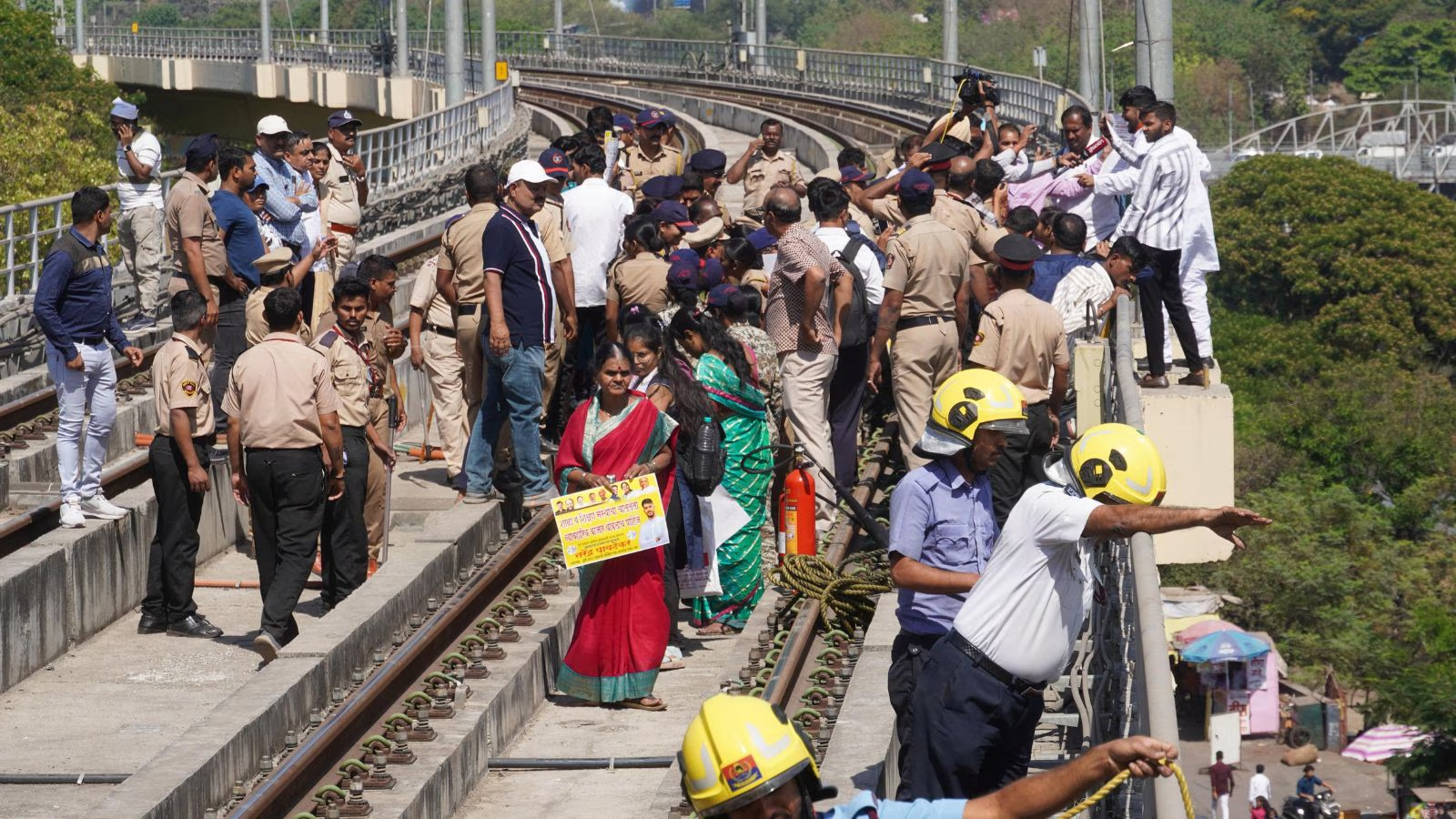Pune court has granted bail to eight women who were apprehended following a protest on the city’s Metro rail tracks. The incident, which occurred on March 9th near the PMC station, saw workers affiliated with the Nationalist Congress Party (Sharad Pawar faction) voicing their concerns over issues potentially linked to urban planning and its impact on the populace.Additional Sessions Judge AL Tikle, while granting bail to the women, stipulated that each furnish a personal bond of ₹25,000 along with one or two sureties of the same amount. The court also directed the women to mark their attendance at the Shivajinagar police station every Monday for the next month, signalling the ongoing nature of the legal proceedings.
A crucial aspect of Judge Tikle’s observation was the inapplicability of Section 74 of the Metro Railways (Operation and Maintenance) Act, which pertains to maliciously derailing a train and carries a stringent punishment of up to a death sentence. The judge further expressed reservations about invoking Section 79 of the same act, which addresses endangering the safety of passengers through rash or negligent actions, given that no serious injuries were reported. This judicial scrutiny of the invoked sections highlights the importance of precise legal application in cases involving public demonstrations and infrastructure.The defence team, comprising lawyers Sachin Zalte-Patil and Pushkar Durge, presented a compelling argument for bail, emphasizing that the protest was peaceful and did not result in any damage to the Metro railway infrastructure.
They further invoked Section 480 of the Bharatiya Nagarik Suraksha Sanhita, which contains provisions for women seeking bail, and argued that the continued judicial custody of the women at Yerawada prison was unnecessary for the completion of the investigation.Conversely, the prosecution voiced its opposition to the bail pleas, citing the significant disruption caused to Metro services, which lasted for two hours and inconvenienced a substantial number of commuters. The authorities also pointed to the possession of petrol by the protesters at the time of their arrest, raising concerns about the potential escalation of the demonstration.
The granting of bail to these women activists in Pune brings to the fore critical questions about the nature of urban development and the space for citizen engagement in shaping their cities. As Pune, like many Indian metropolises, undergoes rapid infrastructural expansion, ensuring that such progress aligns with principles of sustainability, equity, and inclusivity becomes paramount. The concerns raised by the protesters, though expressed through disruptive means, potentially reflect broader anxieties about environmental impact, social justice, and the accessibility of urban spaces.The narrative around this protest could resonate with a wider audience, particularly those in rapidly urbanising centres across India. The tension between the need for modern infrastructure and the rights of citizens to voice their concerns is a recurring theme. The case also touches upon the role of women in public discourse and their willingness to engage in direct action to highlight issues they deem important for their communities.
While the legal process unfolds, the underlying issues that motivated the protest warrant careful consideration. For cities striving towards a zero-net carbon footprint and eco-friendly urban environments, it is crucial to foster channels of communication and participation that allow citizens to contribute to the planning and execution ofdevelopment projects. An equitable city ensures that the benefits of progress are shared by all its residents and that the voices of marginalised groups are heard and addressed.The outcome of this case and the subsequent discussions could set important precedents for how Indian cities navigate the complexities of urban development in a way that is both progressive and inclusive. It underscores the need for a balanced approach that respects the rule of law while also acknowledging and addressing the legitimate concerns of citizens regarding the future of their urban spaces.




